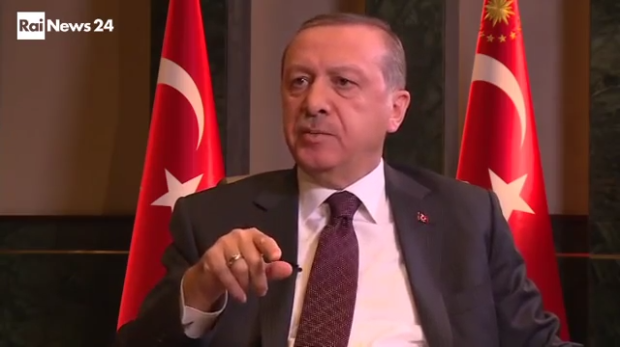Ece Temelkuran: A diary of Turkey’s interesting times
[vc_row][vc_column][vc_column_text]
Straddling the division between Europe and Asia, since 1923 the idealised dream of Turkey has been a secular, modern and democratic country. Although weakened by military coups, the imperfect multi-party democracy survived until recently when president Recep Tayyip Erdoğan declared his ambitions for a presidential regime.
While he is already the only political power dominating the entire political scene, July’s coup attempt allowed him to start a massive witch hunt to suppress his political opponents. Half of the country resists him while the other half offers unquestionable support. The nation is split.
Many believe Turkey has entered the last stage of political disarray. The country now has more jailed journalists than China, it has closed more than 370 NGOs under emergency law and it recently imprisoned a number of Kurdish MPs.
But Turkey is not a standalone case. After the election of Donald Trump in the US, the world woke up to the threat posed by populist leaders who have gained unprecedented support in mobilising the masses against the fundamental values of democracy in several countries. These leaders are more similar to Erdogan than we like to think. Therefore polarized, increasingly authoritarian Turkey, located at the door of Europe, might be the example to follow carefully in order to understand what to expect from the bleak future of democracy.
This is my diary of our interesting times.
12 Nov: The Turks want to share their rich experience of political trauma with the Americans, as Erdogan is among the first group of world leaders to congratulate Trump, followed by Sisi and Le Pen. This is party time for the global mobalisation of organised ignorance. Disappointed Americans should prepare themselves for a full-scale war against the system of liberal values by the banal. This won’t be with House of Cards sophistication, because this isn’t Arendt’s “banality of evil” but the evil of mobilised banal.
13 Nov: A literary event in Zagreb feels irrelevant when friends who are writers are in prison. My heart is pounding at the passport line. These days you never know when they will confiscate your passport by reporting it “lost”. Now I know why Walter Benjamin was too late to leave Nazi Germany. You never know when is too late. I think a lot about Frankfurt School crew nowadays while playing a dangerous hopscotch on borders.
15 Nov: American actress Lindsay Lohan jokes have become the the latest PR tool of the Turkish government. The Erdogan-loving actress said on Turkish channels a few days ago: “In Turkey you have free will as a woman, it’s amazing here.” It is not only the evil but also the bizarre we are struggling with. Interior Minister said, “Come and open the 370 NGO’s if you can,” the Interior Minister announced recently. The self-confidence of this ignorance is paralysing.
16 Nov: A government-supporting paper reports on the today’s mine disaster: “Eight trucks and some miners are stuck”. Oxford Dictionary unveils “post-truth” as the word of 2016. It means “relating to or denoting circumstances in which objective facts are less influential in shaping public opinion.” The “fact” is that sixteen miners were stuck and the “truth” is that precision to lead with the number of truck damaged is shameful.
17 Nov: AKP MP’s put forward a motion for amnesty for sexual assailants of minors should they marry their victims. A last minute intervention from the main opposition MP’s stopped the motion, only to be negotiated again next week. This is what I mean when by an attack human values. One morning you find yourself saying: “No, you cannot marry the minors to their rapists.”
19 November: It turns out the new law also rescues all the assailants if the victim is married to one of her rapists. This is nauseating. Women are shocked and furious. Reaction is intense.
22 Nov: “Shock and awe politics” has worked perfectly again. Erdogan, as if he is unaware of the child abuse law, said that draft should be renewed. While everybody was busy with the insane law, more leading Kurdish political figures were imprisoned. This is how they do it. They get you busy by shaking the unquestionable human values as the side show and meanwhile do other things. CNN is now “discussing” the American alt-right’s Richard Spencer’s and his question of whether or not Jews are humans, just like Turkish media “discussed” the minor’s marriage to their rapists. Women’s organisations are gathering in front of the parliament to protest.
Hey Lindsay, it is really amazing here!
In her new book, Turkey: the Insane and the Melancholy, journalist and author Ece Temelkuran discusses the role of the Turkish ministry of culture in censoring theatre productions.
Turkey Uncensored is an Index on Censorship project to publish a series of articles from censored Turkish writers, artists and translators.
[/vc_column_text][/vc_column][/vc_row][vc_row][vc_column][vc_basic_grid post_type=”post” max_items=”4″ element_width=”6″ grid_id=”vc_gid:1485774853759-05b85f69-9fa3-6″ taxonomies=”8607″][/vc_column][/vc_row]

